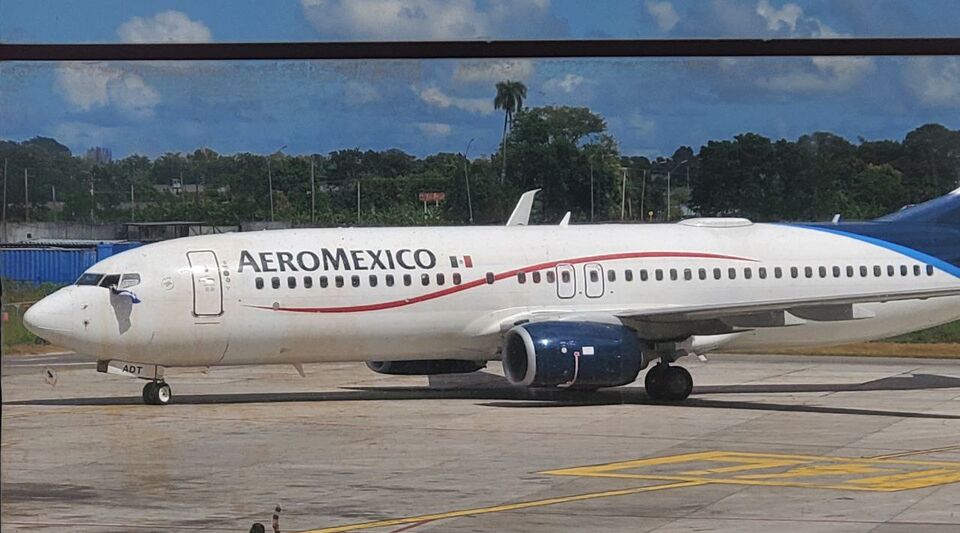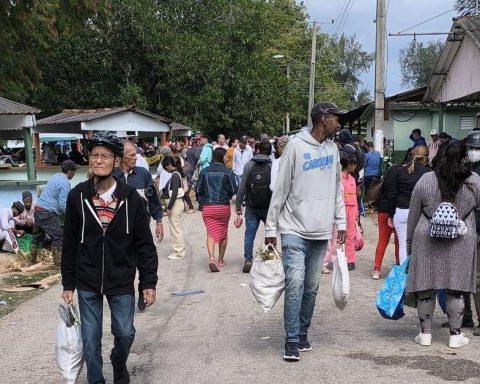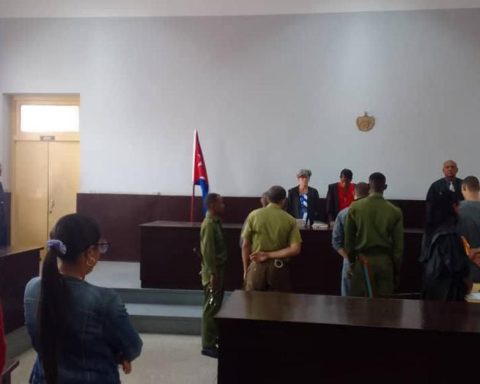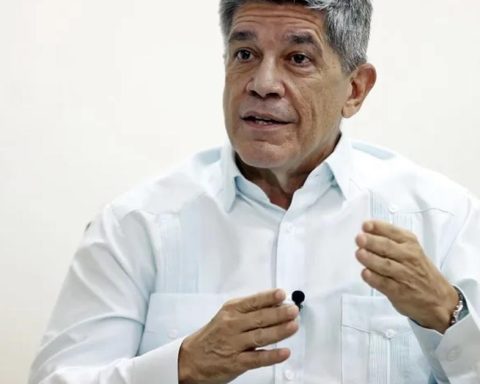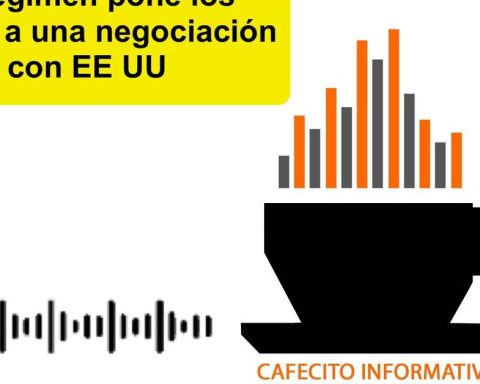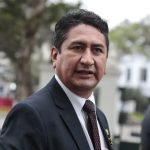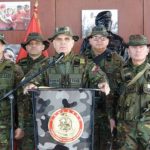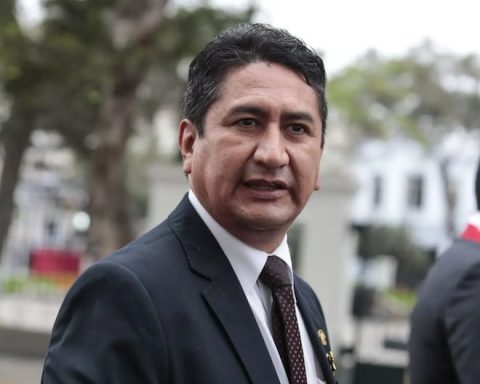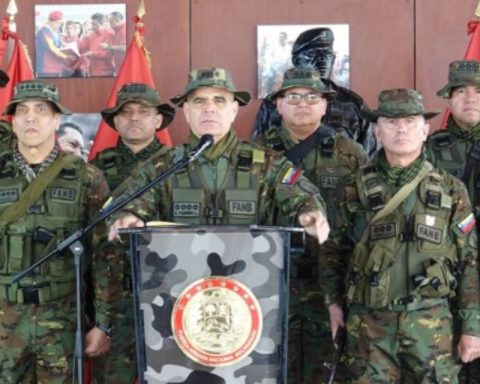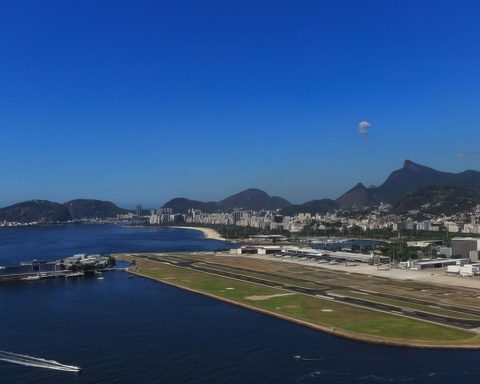Aeroméxico flight AM452 that took off this Tuesday afternoon from the Havana airport seemed like any other trip between the Cuban capital and Mexico City, but most of the travelers who boarded it were actually going to Managua and were not carrying their passport. The travel document was withdrawn by airline employees before boarding the ship to prevent them from staying in Mexican territory, as verified 14ymedio.
After paying about $2,500 for each round-trip ticket from Havana to the Nicaraguan capital, most of the 160 passengers who boarded the plane had their eyes fixed on emigration. “Going to visit the volcanoes,” as the exodus route through Managua is ironically known, has become a highly sought after route and direct flights are barely keeping up.
“My sister who lives in Miami found out that Aeroméxico had reset this month his flights to Cuba and managed to buy my ticket,” a young woman who was traveling with her two young children, one of them a baby just a few months old, and her husband told this newspaper. “When we went to check we had a problem but at In the end we were able to board the plane”.
For most of those who traveled, it was the first time they had boarded a plane and also their first departure from the country.
The “problem” the family faced is that Cuban travelers must first have the go-ahead from Managua to enter the aircraft. “At the counter check in They told us that we had to go to an office so they could scan all our documents and send them to Nicaragua, so they could answer if they let us in or not.” After a few minutes they received the go-ahead and were able to complete the process.
Once in the boarding area, and after passing immigration controls in terminal 2 of the José Martí International Airport, the travelers waited in front of gate B11 to be called to board. Before boarding the plane, the Cuban passport was withdrawn from each of those traveling to Managua by airline personnel. The flight was completely full.
During the two hours and 45 minutes that the trip lasted, the restlessness was palpable in the environment. For most of those who traveled, it was the first time they had boarded a plane and also their first departure from the country. Upon arrival at the Benito Juárez Airport, everyone jumped up from their seats, even before the lights that indicated the obligation to remain seated with the seatbelt fastened went out. But the excitement soon turned to frustration.
“Only passengers who have their passports can get off here,” explained the voice of an employee through the loudspeaker. Just three people began to move down the hall. The rest sat down again. “They take away our passports so that we don’t go to seek refuge or stay inside the airport, we can’t get out of the plane either. Here we are going to wait several hours until it leaves for Managua,” one of the migrants explained to this newspaper.
A flight attendant confirmed the move. “It is what we have planned for this type of travel and we cannot do otherwise,” she reiterated, although she declined to clarify whether the instruction to withdraw the travel document came from the Mexican, Nicaraguan or Cuban authorities.
“I found out when I was already at the boarding gate, nobody told me anything before. But what was it going to be, was it to deliver it or let the plane go”
“That is a violation of our rights. Nobody can take our passports like this because it leaves us undocumented,” a young woman who was accompanied by a girl of about seven years was heard saying out loud. In order to retrieve the travel document, upon arrival in Managua, travelers received a ticket with a printed number.
None of the passengers was previously informed that their passport was going to be withheld. “I found out when I was already at the boarding gate, nobody told me anything before. But what was it going to be, was it to deliver it or let the plane go,” lamented an elderly woman who was flying with her husband. “Overall, we’re going to have to go through Mexico again, now we arrive by plane and we can’t even get off but then we’re going to have to cross the country by land.”
Although some voices protested the situation, the majority remained silent and disciplinedly resumed their seats. “I don’t want to get into trouble and have them return to Cuba,” commented another woman with a baby in her arms. “I’m going to sit here even if I have to wait until tomorrow.”
According to information collected by 14ymedio, The obligation to deliver the passport at the time of boarding those flights has been in force since last October 30, when the Mexican company resumed its flights to Havana. Then, the representatives of Aeroméxico reported that it was essential that travelers with their final destination Managua buy the round-trip ticket without connections with other airlines, since they do not allow them to transfer to an aircraft at the Mexico City airport. that is not from your company.
That same day it was also known that Cubans must pay a 70 dollar “airport fee” at the José Martí airport. Currently, tickets to Nicaragua from Havana by Aeroméxico can cost more than 3,000 dollars because in most cases only first class is available.
________________________
Collaborate with our work:
The team of 14ymedio He is committed to doing serious journalism that reflects the reality of deep Cuba. Thank you for accompanying us on this long road. We invite you to continue supporting us, but this time becoming a member of our newspaper. Together we can continue transforming journalism in Cuba.
